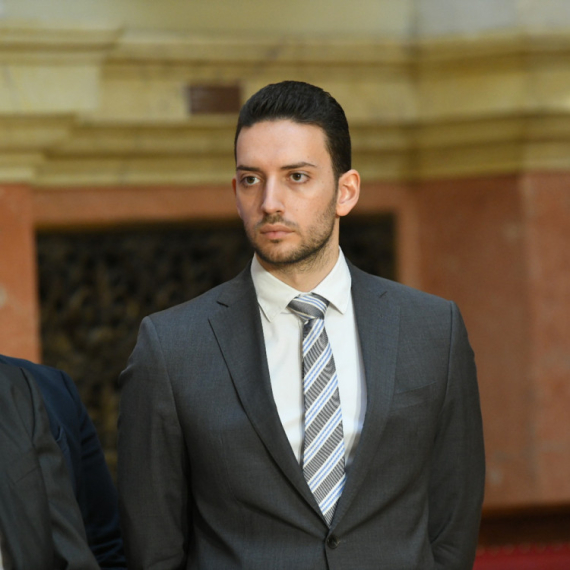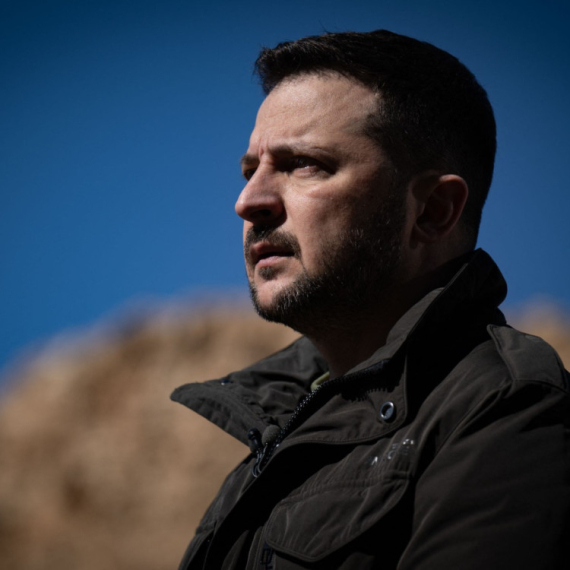World leaders condemn Israel's East Jerusalem plan
U.S., EU and Palestinian leaders have condemned Israel's plan to construct 1,100 new housing units in east Jerusalem.
Wednesday, 28.09.2011.
15:32

U.S., EU and Palestinian leaders have condemned Israel's plan to construct 1,100 new housing units in east Jerusalem. They believed the move that could raise already heightened tensions after last week's Palestinian bid to seek UN membership. World leaders condemn Israel's East Jerusalem plan U.S. Secretary of State Hillary Clinton Tuesday called Israel's decision "counter-productive" to reviving stalled Mideast peace talks. She said both sides should avoid provocative actions that undermine trust, particularly in Jerusalem. EU High Representative for Foreign Affairs and Security Policy Catherine Ashton said Israel's decision to move ahead with new settlement construction in the city's contested Gilo neighborhood "threatens the viability" of a two-state solution and "should be reversed." British Foreign Secretary William Hague noted that settlement expansion was "illegal under international law, corrodes trust and undermines the basic principle of land for peace." An Israeli district committee approved the plan for settlement construction in Gilo on Tuesday. The Israeli Interior Ministry said construction could begin after a mandatory 60-day public comment period, during which objections could be a raised, a process it called a formality. Palestinians oppose Israeli building on land they want as part of a future state. Chief Palestinian negotiator Saeb Erekat said Israel's decision amounts to "1,100 no's to the resumption of peace talks." Peace talks between Israel and the Palestinians broke down last year after an Israeli freeze on West Bank settlement construction expired. The impasse in talks prompted Palestinians to seek U.N. statehood recognition last week. The UN Security Council is set to formally consider the Palestinians' request for statehood and full UN membership on Wednesday. Meanwhile, the U.S. has described Israel's decision to move forward with settlement building as "counter-productive." State Department Spokeswoman Victoria Nuland said the move would not help efforts to restart direct negotiations. Ashton criticized Israel's latest housing expansion, saying the settlement plan "threatens the viability" of a two-state solution between Israel and the Palestinians. The EU is part of the group known as the Middle East Quartet. The group, which also includes the U.S., UN and Russia, has proposed a resumption in talks between the two sides. On Monday, Israeli Prime Minister Benjamin Netanyahu said his country would not renew a construction freeze in order to get Palestinians to agree to the Quartet's plan for new talks. He told the Jerusalem Post that Palestinian insistence on the settlement issue showed a lack of interest in negotiations. On Sunday, Palestinian leader Mahmoud Abbas told supporters in Ramallah that he would resume peace talks only if Israel stopped building settlements in occupied territory. The Quartet's plan calls for a preliminary meeting between Israel and the Palestinians within a month. The meeting would be followed by a return to regular talks and progress on security and borders within 90 days. It envisions the completion of a peace deal no later than the end of 2012. Israeli troops are seen in the West Bank (Beta)
World leaders condemn Israel's East Jerusalem plan
U.S. Secretary of State Hillary Clinton Tuesday called Israel's decision "counter-productive" to reviving stalled Mideast peace talks. She said both sides should avoid provocative actions that undermine trust, particularly in Jerusalem.EU High Representative for Foreign Affairs and Security Policy Catherine Ashton said Israel's decision to move ahead with new settlement construction in the city's contested Gilo neighborhood "threatens the viability" of a two-state solution and "should be reversed."
British Foreign Secretary William Hague noted that settlement expansion was "illegal under international law, corrodes trust and undermines the basic principle of land for peace."
An Israeli district committee approved the plan for settlement construction in Gilo on Tuesday. The Israeli Interior Ministry said construction could begin after a mandatory 60-day public comment period, during which objections could be a raised, a process it called a formality.
Palestinians oppose Israeli building on land they want as part of a future state. Chief Palestinian negotiator Saeb Erekat said Israel's decision amounts to "1,100 no's to the resumption of peace talks."
Peace talks between Israel and the Palestinians broke down last year after an Israeli freeze on West Bank settlement construction expired.
The impasse in talks prompted Palestinians to seek U.N. statehood recognition last week. The UN Security Council is set to formally consider the Palestinians' request for statehood and full UN membership on Wednesday.
Meanwhile, the U.S. has described Israel's decision to move forward with settlement building as "counter-productive." State Department Spokeswoman Victoria Nuland said the move would not help efforts to restart direct negotiations.
Ashton criticized Israel's latest housing expansion, saying the settlement plan "threatens the viability" of a two-state solution between Israel and the Palestinians.
The EU is part of the group known as the Middle East Quartet. The group, which also includes the U.S., UN and Russia, has proposed a resumption in talks between the two sides.
On Monday, Israeli Prime Minister Benjamin Netanyahu said his country would not renew a construction freeze in order to get Palestinians to agree to the Quartet's plan for new talks. He told the Jerusalem Post that Palestinian insistence on the settlement issue showed a lack of interest in negotiations.
On Sunday, Palestinian leader Mahmoud Abbas told supporters in Ramallah that he would resume peace talks only if Israel stopped building settlements in occupied territory.
The Quartet's plan calls for a preliminary meeting between Israel and the Palestinians within a month. The meeting would be followed by a return to regular talks and progress on security and borders within 90 days. It envisions the completion of a peace deal no later than the end of 2012.

























































Komentari 0